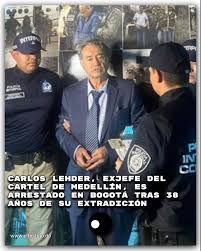The Life and Legacy of Carlos Lehder

Introduction
Carlos Lehder was a notorious figure in the world of drug trafficking during the late 20th century. Born in Colombia in 1949, he rose to prominence as one of the leading drug traffickers associated with the Medellín Cartel. His career has relevance not only in historical contexts but also in discussions about the ongoing issues surrounding drug trade and international crime.
The Rise of Carlos Lehder
Lehder’s involvement in the drug trade began in the 1970s when he capitalized on the growing demand for cocaine in the United States. Alongside fellow traffickers like Pablo Escobar, he helped establish routes that would deliver massive quantities of cocaine to North America. Lehder is often credited with pioneering the use of small planes and private airstrips in the Caribbean, thus revolutionizing methods of smuggling illegal substances.
Key Events and Operations
In 1982, Lehder founded the infamous “Flying University”, a hub for teaching other traffickers how to effectively transport cocaine. His operations led to the creation of a complex network that included not only drug production but also logistical support, marking a significant expansion in the scope of the drug trade. At the peak of his power, Lehder was estimated to be responsible for transporting about 20% of all cocaine entering the United States.
However, Lehder’s reign came to an end in 1987 when he was captured by Colombian authorities and later extradited to the United States. In 1992, he was sentenced to life in prison without the possibility of parole, primarily due to his role in drug trafficking and his connections to violent crime.
Legacy and Impact
Carlos Lehder’s actions have left a lasting impact on both Colombia and the United States. His successful techniques in drug trafficking laid the groundwork for future drug lords, contributing to the ongoing challenges faced by law enforcement on both sides of the border. His life also serves as a reminder of the far-reaching consequences of drug-related crime, impacting countless lives and communities.
Conclusion
Today, as discussions about drug legalization and reform continue, the story of Carlos Lehder underscores the complexities of the drug trade and its implications. His legacy offers insights into not only the tragic consequences of addiction and crime but also the persistent challenges that nations face in combating drug trafficking. The ongoing evolution of drug smuggling tactics continues to influence law enforcement strategies and drug policy reforms worldwide.





